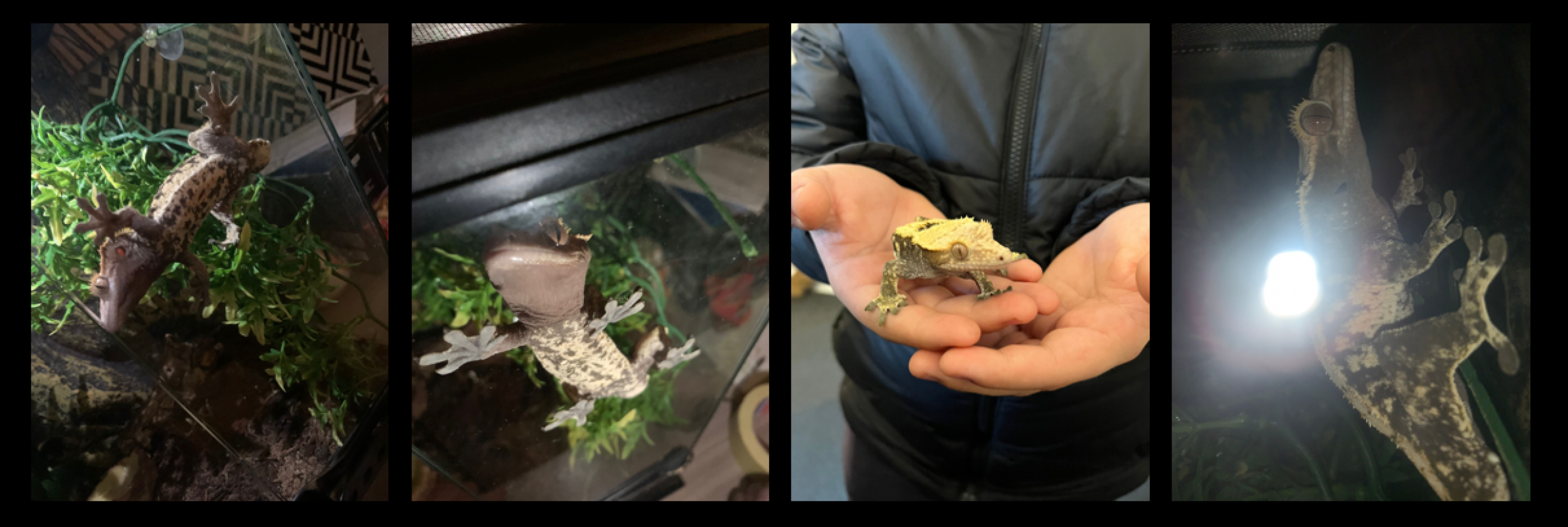Feeding your crested gecko a healthy and balanced diet is essential to their health and well-being. As omnivores, crested geckos require a diet that includes both insects and fruit. In this guide, we’ll walk you through the process of feeding your crested gecko and providing them with the nutrition they need to thrive.
Understanding Your Crested Gecko’s Diet
Crested geckos are omnivores, meaning they eat both plant matter and insects. In the wild, they primarily feed on fruit, nectar, and insects such as crickets, roaches, and mealworms. As pets, crested geckos can be fed a variety of foods to ensure they receive a balanced diet.
Commercially Available Crested Gecko Diets
Commercially available crested gecko diets are a convenient and nutritionally balanced option for feeding your pet. These diets typically come in a powdered form that is mixed with water to create a paste that can be offered to your gecko. Look for diets that contain a balance of protein, fat, and carbohydrates, as well as vitamins and minerals.
Live Insects
Live insects can also be offered to your crested gecko. Crickets, roaches, locusts and mealworms are popular options. It’s important to offer insects that are appropriately sized for your gecko, as larger insects can be difficult for them to digest. Insects should be dusted with calcium and vitamin D3 supplements before feeding to ensure your gecko receives the nutrients they need.
Fruit and Vegetables
Fruit and vegetables can also be offered to your crested gecko. Fruits such as bananas, mangoes, and papayas are great options. Vegetables such as carrots, squash, and sweet potato can also be offered. However, these should be fed in moderation as they are high in fiber and can cause digestive issues if fed in large quantities.
Feeding Schedule
Crested geckos should be fed every two to three days. Offer a small amount of food and remove any uneaten food after 24 hours to prevent bacterial growth. When offering insects, it’s important to only offer as many as your gecko can eat in one feeding to prevent overfeeding.
Water
Fresh water should be available to your crested gecko at all times. Provide a shallow dish of water and replace the water daily. The water dish should be cleaned regularly to prevent the buildup of bacteria.
Feeding your crested gecko a healthy and balanced diet is essential to their health and well-being. Commercially available crested gecko diets, live insects, and fruit and vegetables can all be offered to ensure your gecko receives the nutrients they need. Offer food every two to three days and remove any uneaten food after 24 hours. Fresh water should be available at all times. With proper feeding and care, your crested gecko can thrive and live a long and healthy life.
Feeding Crested Geckos FAQs
Q: What should I feed my crested gecko?
A: Crested geckos are omnivores and require a diet that includes both plant matter and insects. Commercially available crested gecko diets, live insects, and fruit and vegetables can all be offered to ensure your gecko receives the nutrients they need.
Q: How often should I feed my crested gecko?
A: Crested geckos should be fed every two to three days. Offer a small amount of food and remove any uneaten food after 24 hours to prevent bacterial growth.
Q: Can I offer my crested gecko only commercially available crested gecko diets?
A: While commercial crested gecko diets are a convenient and nutritionally balanced option, it’s best to offer a variety of foods to ensure your gecko receives a balanced diet. Live insects and fruit and vegetables can also be offered.
Q: Do crested geckos require supplements in their diet?
A: Crested geckos require calcium and vitamin D3 supplements to ensure proper bone health. Dusting live insects with calcium and vitamin D3 supplements before feeding is recommended. Commercially available crested gecko diets may also contain these supplements.
Q: What should I do if my crested gecko is not eating?
A: If your crested gecko is not eating, there could be a variety of reasons, including stress, illness, or an unsuitable diet. It’s important to seek advice from a veterinarian who specialises in reptile care to determine the cause of the problem and the best course of treatment.

